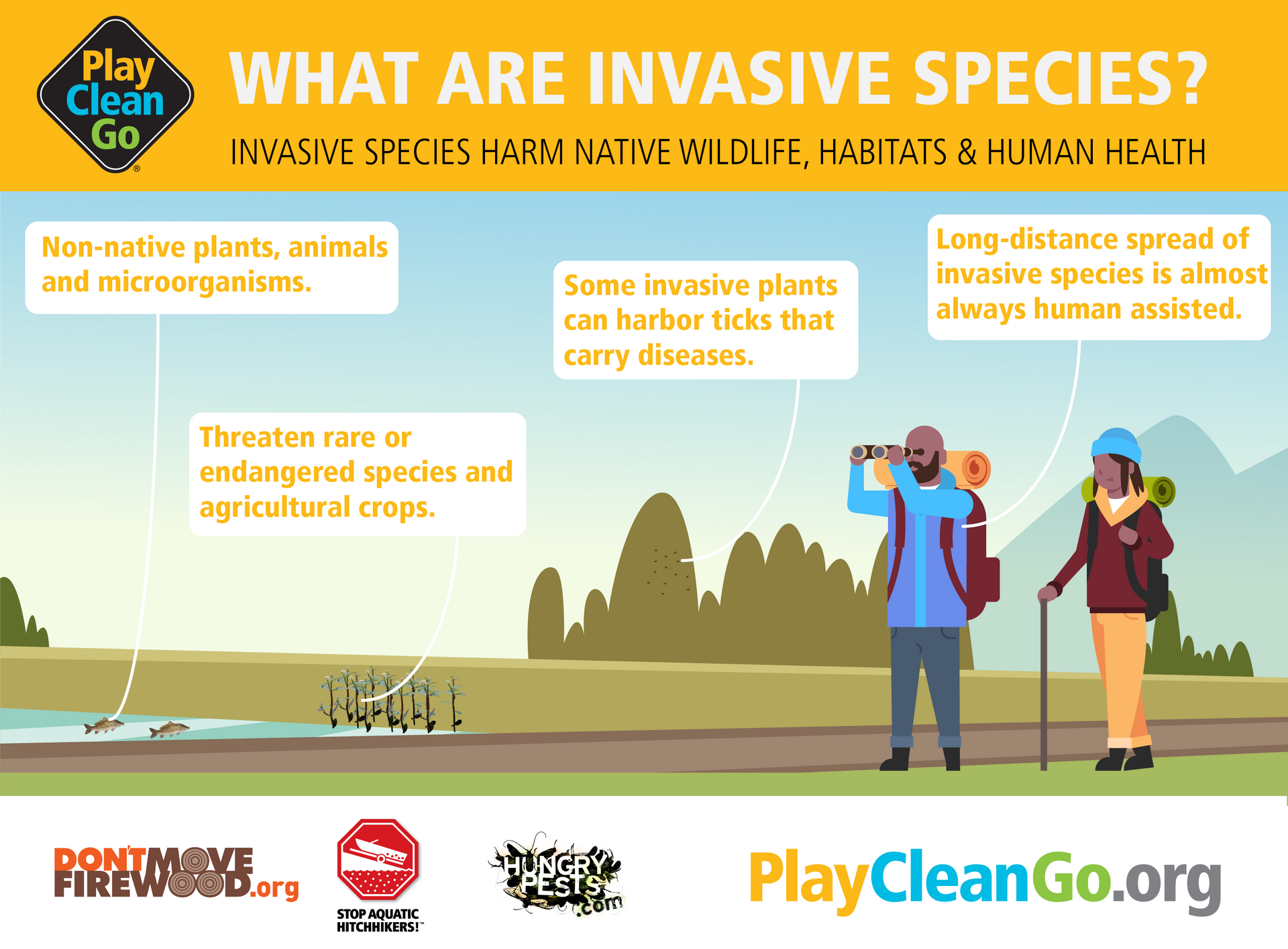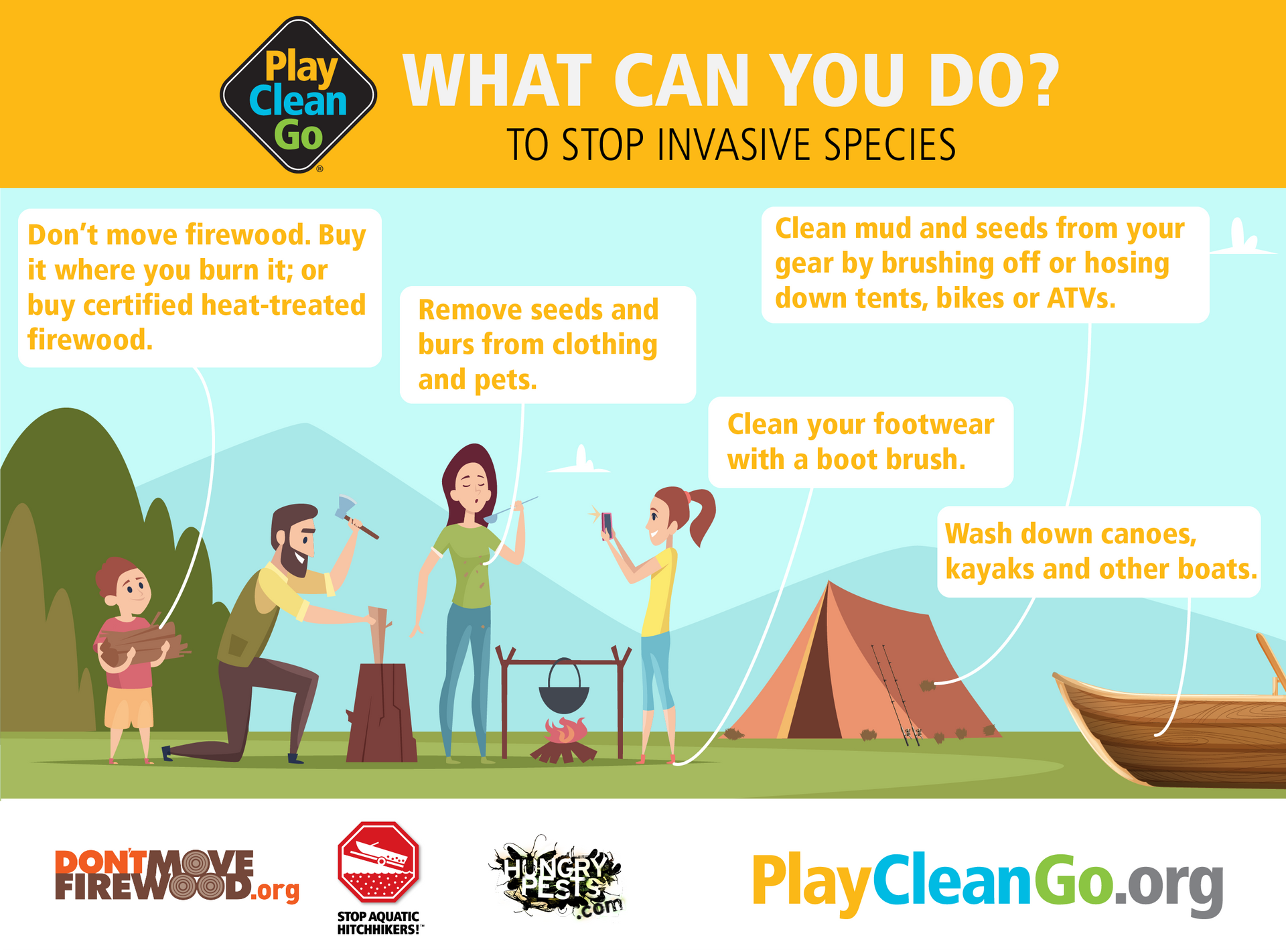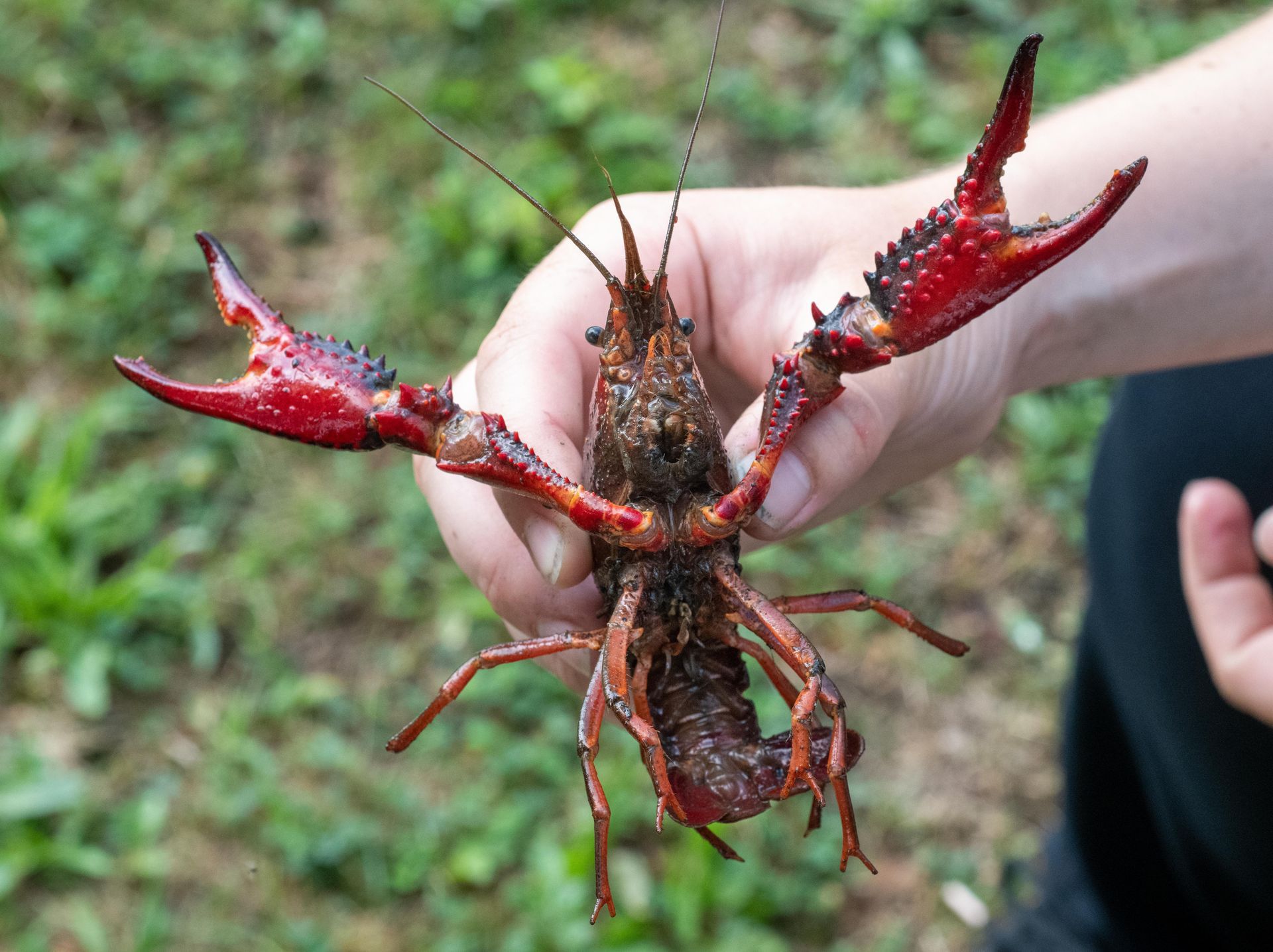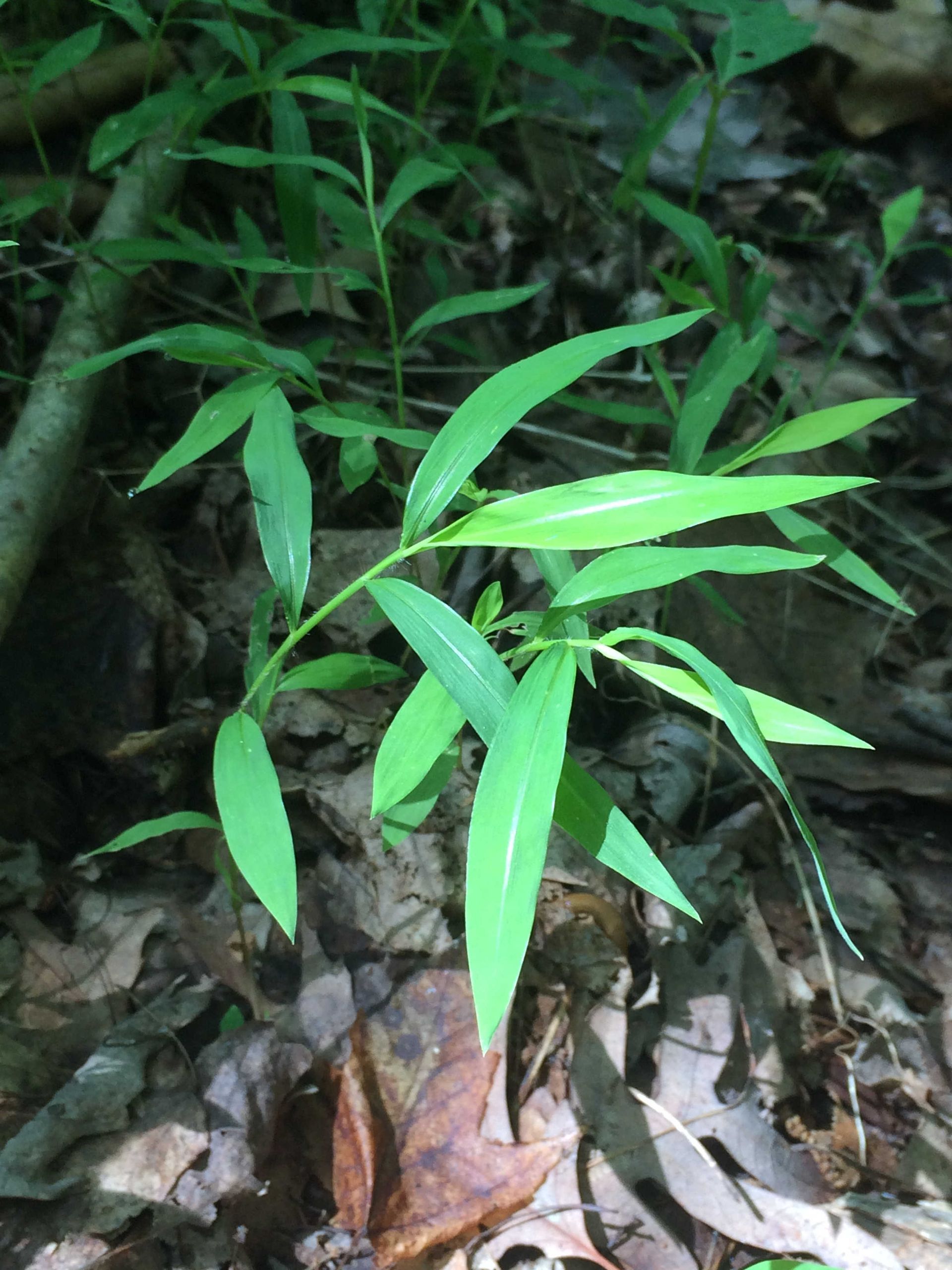PlayCleanGo Awareness Week: Taking Action on Invasive Species
This week marks the annual PlayCleanGo Awareness Week, taking place from June 7-14. Hosted by the North American Invasive Species Management Association (NAISMA), this week encourages outdoor enthusiasts to help stop the spread of invasive species through simple actions. This year’s theme, “Partnering Together to Protect Our Favorite Places”, focuses on the importance of collaboration with Invasives Canada and CONABIO to illustrate how actions can create meaningful change across North America.
What is an Invasive Species?
The U.S. Department of Agriculture’s National Invasive Species Information Center defines an invasive species as one that is “non-native to the ecosystem under consideration, and whose introduction causes or is likely to cause harm to the environment, economy, or human health”. It’s important to note that the terms “non-native” and “invasive” cannot be used interchangeably. A species can be non-native and therefore not originate from North America, but if it does not cause harm in any way, it is not considered invasive. In Michigan, many non-native species like fruits, vegetables, and livestock are not harmful and provide economic benefits to local communities (Michigan Department of Natural Resources).
An invasive species can be a plant, fish, crustacean, insect, or any other organism. Invasive species cause harm when they reproduce and spread rapidly, outcompeting native species for resources like food and shelter. Because many invasive species have no natural predators, they can flourish and change the balance of the delicate ecosystems we rely on. The Michigan Department of Natural Resources (DNR) has created a watch list of species that pose an immediate or potential threat to Michigan.

What is PlayCleanGo?
PlayCleanGo is a national campaign that works to help prevent the damaging effects of invasive species to North America’s land and waters. Through partnerships with many organizations and community-based outreach, the campaign aims to raise awareness of how and why thousands of invasive species are spread every year. Outreach is provided by educational resources to help instill a strong stewardship ethic among partners across the country.
The campaign’s core messaging is this:
PLAY: Play in the outdoors! Camp, hike, fish, swim – have fun!
CLEAN: Before you leave the trail, campground, or shore, clean your shoes and other gear from debris and plant material. This can be done using a handheld boot brush or at a boot brush station if available. If you are spending time on the water, clean your watercraft and equipment, drain any live wells or bilges, and let everything completely dry before your next outing. If you are camping, make sure to purchase firewood locally instead of transporting it from your home.
GO: Head out on your next adventure in the outdoors, free from invasive species

Learn More
To learn more about combatting invasive species this week, stay connected to the PlayCleanGo campaign at https://playcleango.org/take-action/playcleango-awareness-week/. Many educational resources and outreach materials are available on their website for free download. They also have a “Take Action” page found HERE with many helpful tips on practical ways to prevent the spread of invasive species while enjoying the outdoors.
To stay connected with all things MUCC, follow us on Facebook, Instagram, X, and LinkedIn.
Recent Posts





